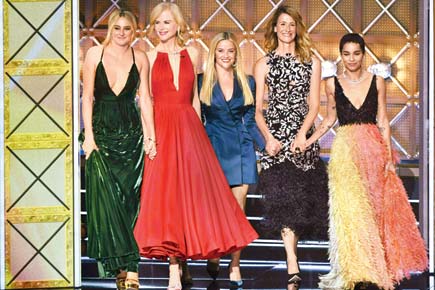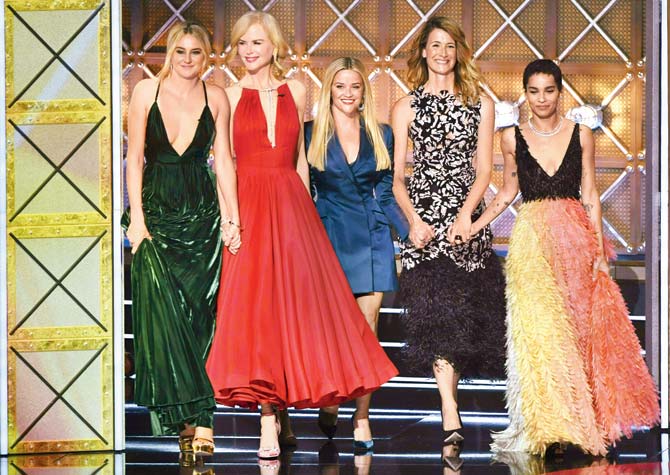As women enter a golden era in international TV, Indian soaps are still misogynistic. Is this because we don't demand better?


Reese Witherspoon (centre) walks onstage with fellow cast members of Big Little Lies, Shailene Woodley, Nicole Kidman, Laura Dern, and Zoe Kravitz, during the 69th Emmy Awards in Los Angeles on September 17. Pic/Getty Images

ADVERTISEMENT
I remain fascinated by shameless women; those who either don't give two hoots about what the rest of the world think of them, or those who do a stellar job of hiding the fact that they do, even those who have the audacity to be unlikeable, or unpopular, or unwomanly. I've been recently rewatching 30 Rock and am rediscovering Tina Fey's Liz Lemon among the least feminine depictions of womanhood in television history. She, like Frasier's Roz, exemplifies
female protagonists whose personalities simply cannot be expected to conform to stereotypes and whose dimensions keep changing, depending on the angle from which you look at them.
During the Emmys, the other night, I had goosebumps watching Reese Witherspoon speak of how it was a significant moment for women on television, echoing something Julianna Margulies, the lead protagonist of The Good Wife, said a few years ago, how there were so many more roles for women on television because the medium had finally come of age and had embraced the need for diversity.
We have come a long way from imagining women as either Madonnas or whores, as good or bad, moral or shameful, to be brandished with the scarlet letter. But the 'we' here is suggestive only of an audience that has the luxury and the privilege of watching international television.
What passes off in India as television is still deplorable, and I find that even the mere sound of a special effect in a local soap can trigger a mild aneurysm. I sometimes wonder if it is because we, as an audience, don't ask for much more.
Is it possible that we get the television that we deserve, like with our governments? Or is it because we cannot imagine the women on our screens to be anything other than petty and single-minded, backstabbing and perennially at war with others of their gender? Is the sin one of a grievous inability to conceive of women as anything other than versions of stereotypes?
Whether this trend — which has been in place for so long it has become a norm, of women as only able to exist in relation to men, in relation to patriarchal set-ups, as wives, mothers, sisters-in-law, nieces, daughters — can change can only be determined by audiences. And if it doesn't, it means we are all complicit in perpetuating a form of misogyny.
Deliberating on the life and times of Everywoman, Rosalyn D'Mello is a reputable art critic and the author of A Handbook For My Lover. She tweets @RosaParx. Send your feedback to mailbag@mid-day.com
 Subscribe today by clicking the link and stay updated with the latest news!" Click here!
Subscribe today by clicking the link and stay updated with the latest news!" Click here!







